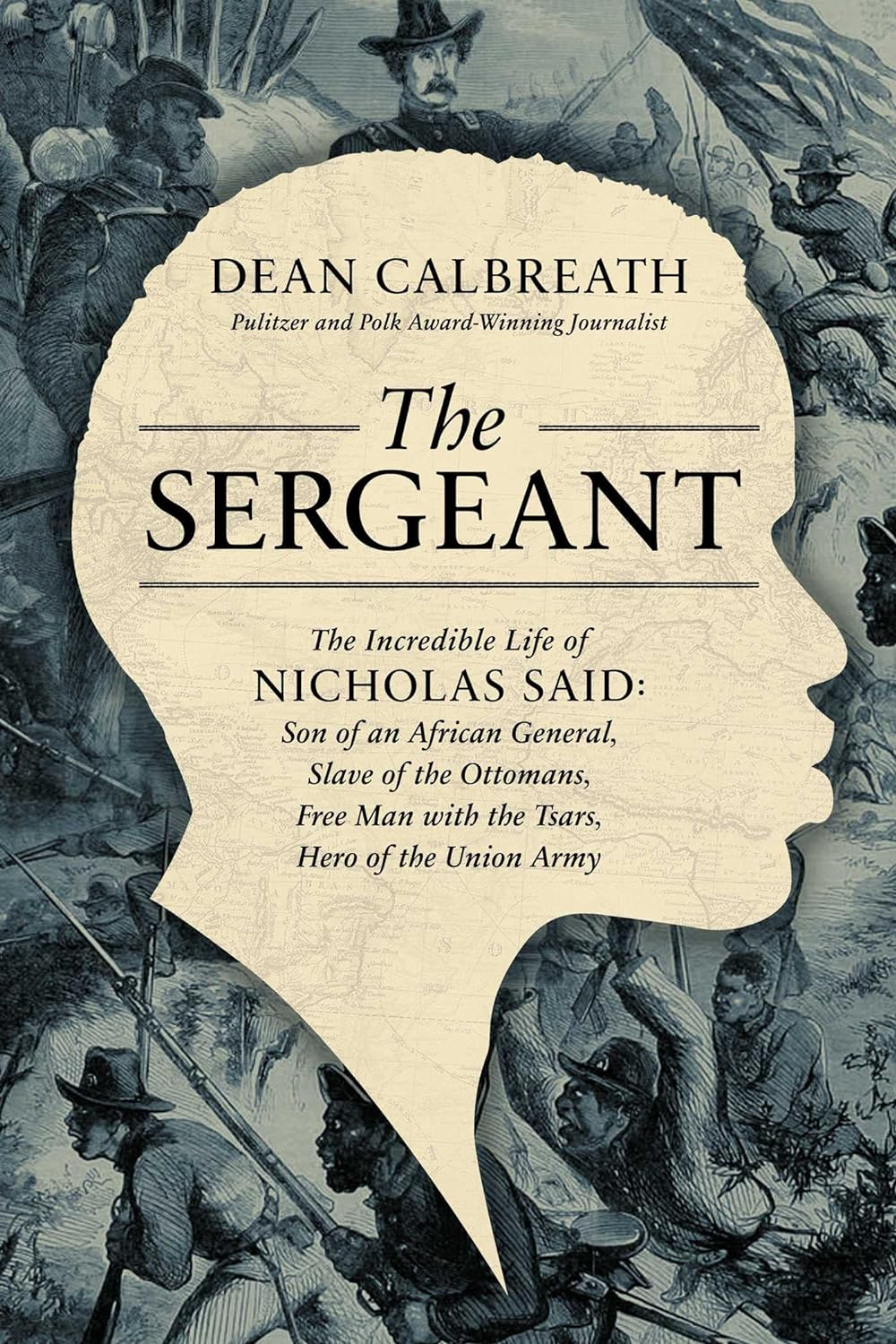If a novelist had written the life of Nicholas Said, “Son of an African General, Slave of the Ottomans, Free Man Under the Tsars, Hero of the Union Army,” she would have been criticized for creating a character who defies reality. The improbabilities that formed Said’s life make any summary oversimplified. For the astonishing details, read Dean Calbreath’s biography, “The Sergeant.”
Mohammed Ali ben Said (later Nicholas Said) was born circa 1837 into a powerful family in Kukawa, then the walled capital of the sheikhdom of Borno and now northeastern Nigeria. His father was a warrior and military leader who enslaved many people — though he was himself enslaved, but of a higher order than the others. Under Borno’s feudal system, he was a general, or “kachella,” entrusted to take on certain tasks. If vassals failed to meet the high taxes demanded of them, kachellas were dispatched to plunder and loot villages and enslave anyone old enough to work in payment. Said’s father kidnapped people into slavery and was actively involved in Borno’s thriving slave trade, which brought people to market in Egypt and Liberia for sale throughout the Muslim world.
In the complex world of Islamic slavery, most Muslim enslaved people came into bondage through violence and were doomed to lives of hard labor at great distances from home, but a discrete number rose to professional positions, as Said’s father had done. Unlike American chattel slavery, bondage did not pass from parent to child. In addition, “Islam generally offered more legal rights and paths to freedom than in the Americas … [and] discouraged perpetual slavery.” Thus, opportunities were open to Said.
When Said’s father was killed driving back an attack from a neighboring kingdom, 9-year-old Said was sent to boarding school by his uncle guardian. There, he mastered writing in Kanuri and then Arabic. At 13, Said was captured and sold to Abd el-Kader, “a most ferocious and cruel-looking” merchant who traded in ivory and people. Said was forced to travel across the Sahara to the Turkish province of Fezzan, at the eastern end of the Ottoman Empire. When el-Kader discovered who Said’s father was, he offered liberation. Said declined because he could not bear to cross the Sahara again and was confident he could buy his freedom later. He requested to be sold to a Turk (Turks were known to pay allowances) and ended up with Abdy Aga, a military aide-de-camp to Fezzan’s governor.
